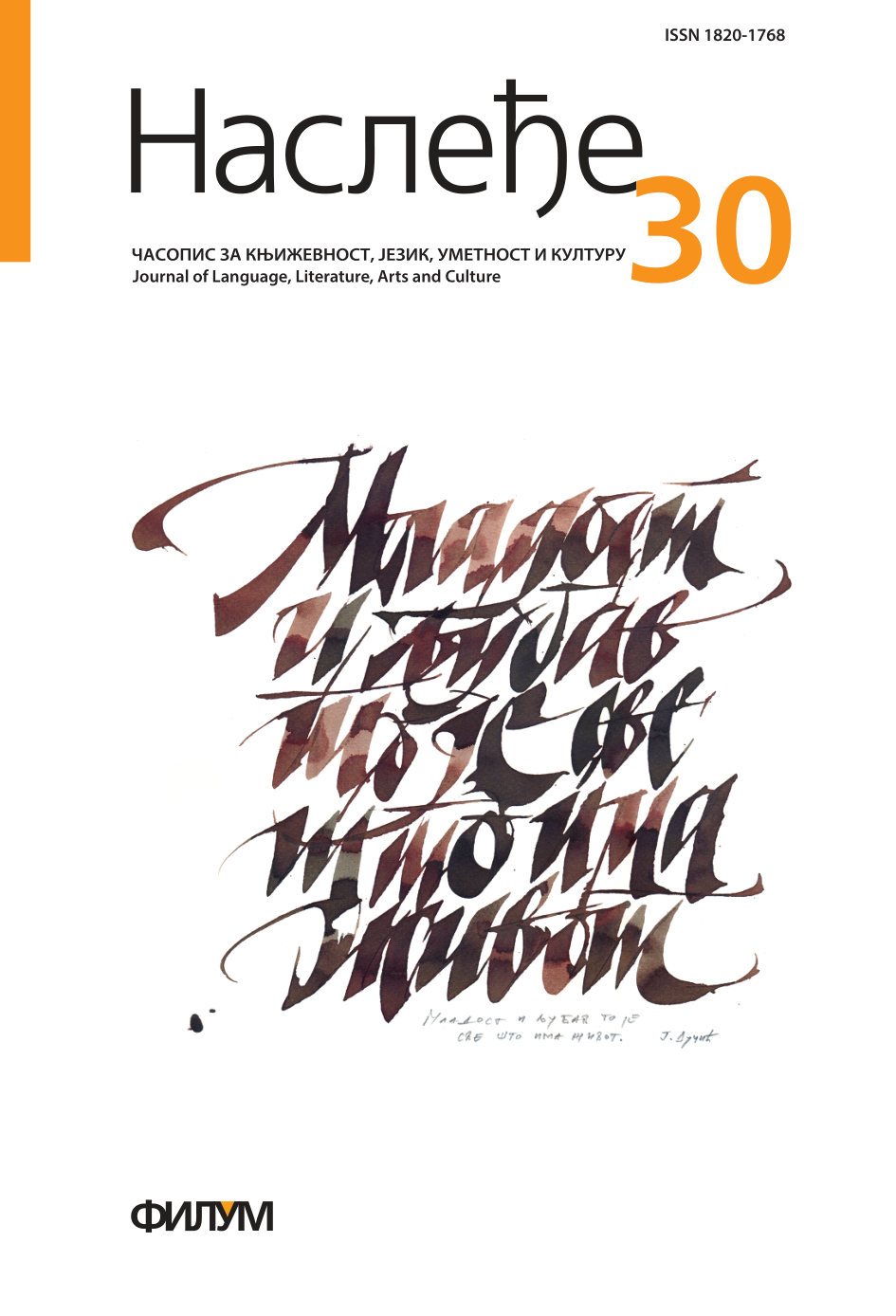ONE OF THE MEANINGS OF THE ENGLISH PREPOSITION OVER
Keywords:
preposition over, covering, trajector, landmark, rotated schemasAbstract
This paper analyzes the possibility of pragmatic derivation of the covering meaning assigned to the English preposition over. We show that this meaning of the preposition has been treated as a distinct one by several publications and that it appears in a number of variations depending on the characteristics of the entities that the preposition connects. We demonstrate on several examples that this meaning could be inferred in the course of utterance interpretation. Our starting point is the basic meaning of the preposition proposed by principled polysemy authors. We combine this meaning primarily with the knowledge of the context and the characteristics of the trajector and the landmark. We also accept Lakoff”s view of the change of perspective, i.e. rotated schemas. Thus we arrive at the meaning of covering which is not a distinct node in our semantic memory, but a pragmatically derived meaning.
References
Brugman 1988: C. Brugman, The Story of over: Polysemy, Semantics, and the Structure of the Lexicon, New York: Garland.
Bugarski 1996: R. Bugarski, Predlozi over, under, above, below i beneath u savremenom engleskom jeziku (2. izdanje), Beograd: XX vek: Čigoja štampa.
Carston 2002: R. Carston, Thoughts and Utterances: The Pragmatics of Explicit Communication, Oxford: Blackwell Publishing.
Dewell 1994: R. Dewell, Over again: image-schema transformations in semantic analysis, Cognitive Linguistics, 5 (4): 351–380.
Lakoff, Johnson. 1980: G. Lakoff, M. Johnson, The Metaphors We Live By, Chicago/ London: University of Chicago Press.
Lakoff 1987: G. Lakoff, Women, Fire and Dangerous Things: What Categories Reveal about the Mind. Chicago: University of Chicago Press.
Rasulić 2004: K. Rasulić, Jezik i prostorno iskustvo: konceptualizacija vertikalne dimenzije u engleskom i srpskohrvatskom jeziku, Beograd: Filološki fakultet, Beograd: Čigoja štampa.
Sperber, Wilson 1995: D. Sperber, D. Wilson, Relevance: Communication and Cognition (2nd ed.), Oxford: Blackwell Publishing.
Taylor, 1989/2003: J. R. Taylor, Linguistic Categorization. Third Edition. Oxford: Oxford University Press.
Tyler, Evans 2003: A. Tyler, V. Evans, The Semantics of English Prepositions: Spatial Scenes, Embodied Meaning and Cognition, Cambridge: Cambridge University Press.






